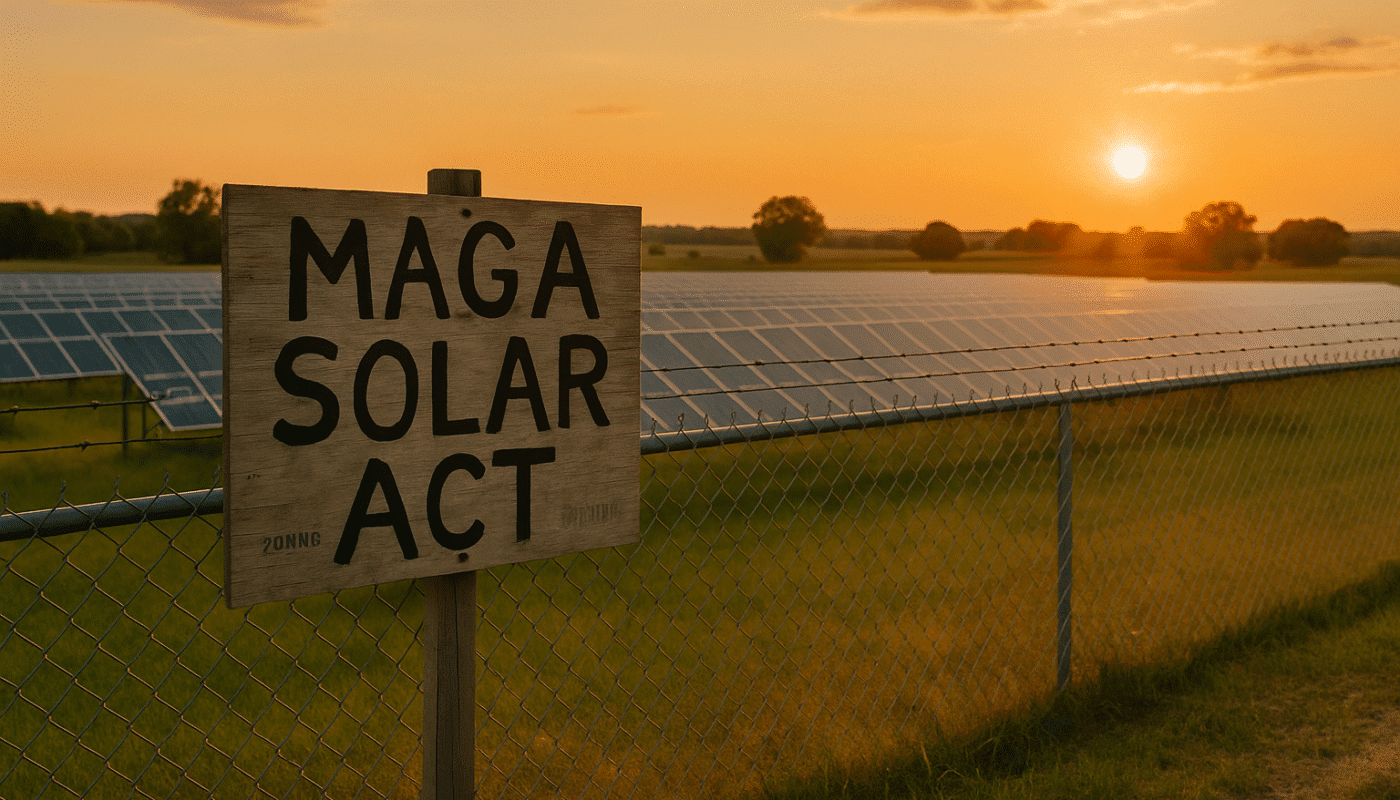The MAGA Solar Act proposes a statewide cap on solar energy, mandates local control, and bans panels from adversarial nations like China and Iran.
Michigan Republicans Push Solar Cap, Citing Energy Independence and Local Control

State Reps. Greg Markkanen (R-Hancock) and Angela Rigas (R-Caledonia) have introduced House Bill 4590, a measure dubbed the Maximizing American Grid Affordability (MAGA) Solar Act, aimed at reshaping Michigan’s solar energy development. The proposed law caps statewide solar deployment, prohibits panels manufactured in certain foreign countries, and enforces local zoning authority over all solar installations.
“This is what responsible solar looks like,” Markkanen stated in a release, describing the legislation as a conservative response to “radical energy mandates.”
Introduced on June 10, 2025, and referred to the House Energy Committee, the bill seeks to amend the 2008 Clean and Renewable Energy and Energy Waste Reduction Act to embed a more restrictive approach toward solar energy development.
Bill Would Ban Chinese Solar Panels, Require Local Approval for Projects
The MAGA Solar Act bars the use of solar panels made wholly or partly in China, North Korea, or Iran, a move supporters say promotes national security and economic independence. It also mandates that all solar developments comply with local zoning ordinances, effectively giving counties and townships veto power over solar installations.
Under the proposed law, large-scale forest clearing for solar development on state land would be prohibited. Additionally, projects must either be rooftop solar or engage in agrivoltaic practices, where land is used for both farming and solar energy.
Proposed MAGA Solar Act Aims to Limit Market Penetration at 20 Percent
The legislation directs the Michigan Public Service Commission (MPSC) to ensure that no more than 20% of the state’s electricity comes from solar sources connected to the grid. Critics argue this could artificially restrict Michigan’s clean energy transition and contradict statewide climate goals.
The cap could hinder community solar and utility-scale installations that are key to meeting Michigan’s clean energy benchmarks. “Capping solar growth at 20% seems counterproductive in a state that’s already falling behind on renewables,” said Douglas Jester, partner at 5 Lakes Energy, a clean energy consultancy, in a phone interview?MLA citation below?.
Community Solar Provisions Include Savings Mandate and Forest Protections
The bill does include consumer-focused provisions. A 10% minimum ratepayer savings is required for subscribers to any shared solar installation, and no financial penalties may be levied for customers who terminate their subscriptions.
It also includes a provision to protect public forests, stating that solar developments may not involve clear-cutting densely forested public lands.
If enacted, the law would also promote the use of locally distributed shared solar (LDSS) facilities, which allow multiple households or businesses to subscribe to a shared solar source. LDSS developments would require at least three subscribers and limit individual ownership to prevent monopolization.
Utilities Would Be Required to Cooperate with Third-Party Solar Developers
HB 4590 compels utility companies to support third-party developers of LDSS systems and ensure fair interconnection opportunities. It also prohibits utility providers from penalizing customers or shifting them into different rate classes for participating in shared solar.
However, third-party developers must already own and operate at least 25 megawatts of solar capacity in other states to be eligible to develop shared solar in Michigan.
Legislation Reflects Growing Partisan Divide Over Energy Policy in Michigan
The MAGA Solar Act follows a series of moves by Michigan Republicans to counteract Democratic energy mandates, including Gov. Gretchen Whitmer’s climate initiatives and recent pushes to increase Michigan’s renewable energy targets.
Proponents of HB 4590 argue it places “Michigan families, workers, and landowners first” by promoting energy independence and economic nationalism. Critics, however, warn the act could hinder progress, restrict competition, and drive up energy costs by limiting supply-side innovation.
Related Coverage and Broader Energy Policy Context
Michigan is currently transitioning away from coal and expanding its renewable energy mix. DTE Energy and Consumers Energy have both announced carbon neutrality goals by 2040. The MAGA Solar Act would represent a significant detour from that trajectory if passed.
For further detail, the full legislative text is available from the Michigan Legislature: House Bill 4590 PDF
Additional commentary sourced from:
Jester, Douglas. Phone interview. June 30, 2025. 5 Lakes Energy. https://www.5lakesenergy.com/
Read More Interesting Feature Stories From ThumbWind
- Michigan Feature News Stories – Unveiling the diverse and vibrant people, captivating places, and remarkable events that come together to make the Great Lake State unique.
- Strange Political News – A sarcastic take on official news from around the U.S., exploring the absurdities that often arise in the political landscape.
- Michigan Hometown News – News and events from Michigan’s Upper Thumb region worth knowing.
Your Turn – Like This, or Hate it – We Want To Hear From You
Please offer an insightful and thoughtful comment. We review each response. Follow us to have other feature stories fill up your email box, or check us out at ThumbWind News




